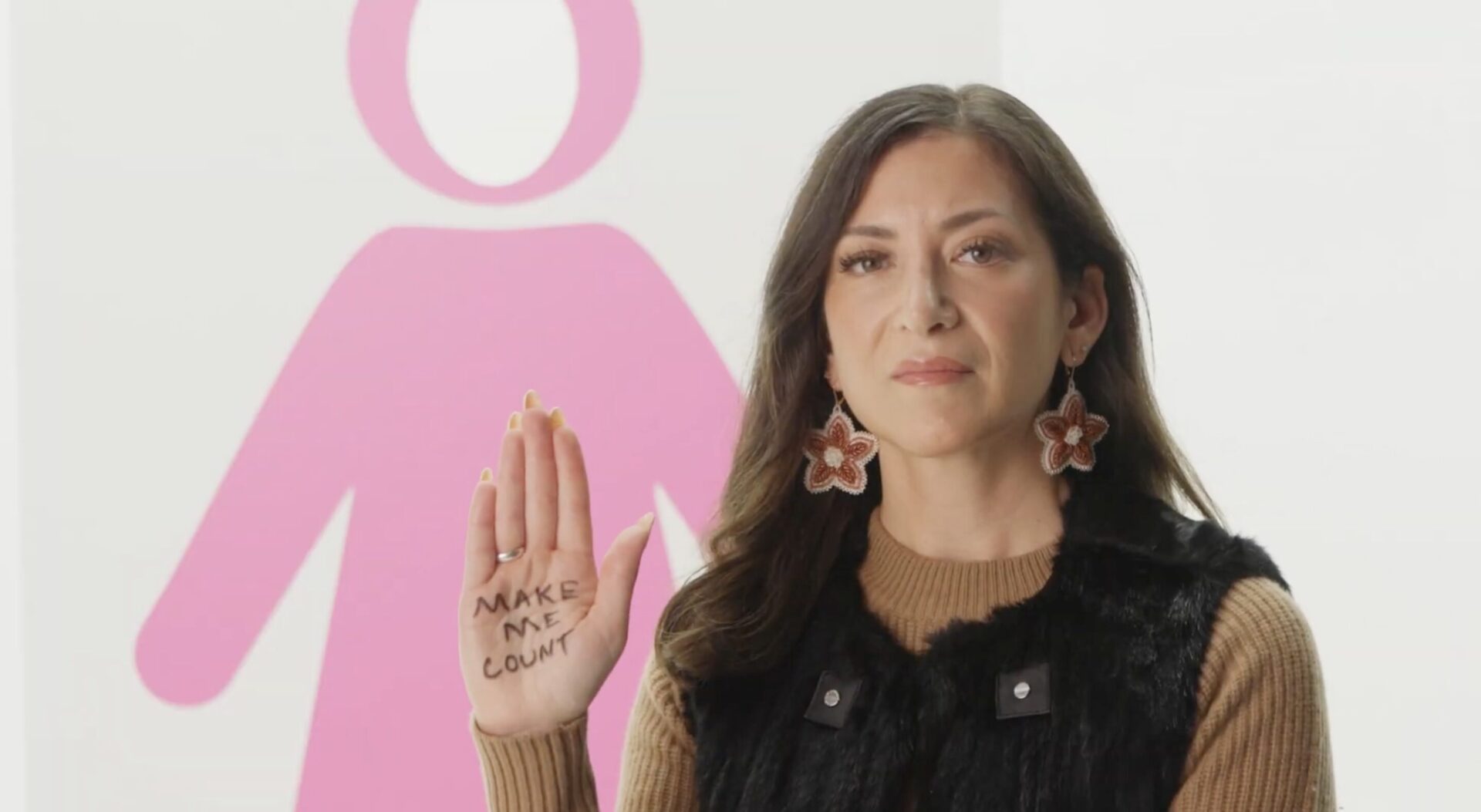Hi, I’m Ashley Stat #MakeMeCount
5 MINS to read

Tell us a bit about you. Who is Ashley to someone who has never met you?
I am a mom to a spirited 5-year-old and two playful cats, living life with passion and purpose. I value loyalty, empathy, and good sense of humour, which helps me through life’s ups and downs. Professionally, I am a lawyer dedicated to advocating for the rights and well-being of my Indigenous clients. I proudly embrace my roots as a member of the Mohawk Nation in Kahnawake from my father’s side, and Italian from my mom’s side.
Tell us a bit about your family… Growing up, was cancer or breast cancer something you were aware of? If so, can you talk a bit about that?
Cancer wasn’t prominent in my family history, so it was never a major topic of concern growing up. But the word ‘cancer’ was always terrifying to me. Growing up, I saw movies where cancer almost always resulted in tragedy. So, when I received my diagnosis, I was not only in complete shock and disbelief but also profoundly scared.
What was your experience like navigating the healthcare system with a breast cancer diagnosis as an Indigenous woman? Were there any gaps you noticed? Things that made you feel unseen or unheard?
Navigating the healthcare system as a young mom with breast cancer felt pretty isolating. There were no guides for dealing with the loss of my breast, my hair or my lashes – intimate struggles that deeply impacted my self-image during treatment. While the healthcare system provided essential care, it often lacked understanding of these personal struggles. During my treatment, I found comfort in buying Indigenous-made earrings. Supporting Indigenous businesses, especially during the COVID pandemic when I underwent treatment, felt special. Wearing these earrings became a symbol of my resilience and a source of empowerment. Plus, I looked pretty fierce!
I also remember when my colleague gave me chaga tea, sourced directly from a First Nation community. Drinking it, I felt an immediate warmth – physically and spiritually. It provided a level of comfort that is hard to describe. This experience made me think of a potential area for further research: examining how colonization has impacted the availability of traditional medicines and foods in Indigenous communities, and exploring their possible roles in cancer prevention and treatment support.
How do you feel knowing that we don’t currently collect data on people’s racial and cultural identities (i.e. we don’t currently have information or detail about how many people diagnosed or living with breast cancer are Indigenous and other factors within the social determinants of health that might help better inform their care)?
The lack of data on racial and cultural identities makes it appear as if certain communities, are overlooked in the healthcare system. This lack of visibility can contribute to feelings of neglect and marginalization, making it seem that these communities are not prioritized in health service planning and improvements.
It’s concerning that without such data, identifying and addressing disparities in health outcomes becomes much more difficult. For example, higher rates of breast cancer or worse outcomes among Indigenous women may go unaddressed simply because they are not sufficiently documented.
What do you want people to know or understand about your experience?
Breast cancer will always be part of my story. My journey with cancer didn’t end when my treatment stopped; its effects linger and continue to shape my life and experiences. And embracing this as an ongoing part of my journey is perfectly okay.
Why do you think it’s important that we start collecting more detailed information about who is being diagnosed with breast cancer?
Indigenous women can have higher rates of certain health conditions, underscoring the importance of better screening and culturally tailored health education programs. Furthermore, their underrepresentation in medical research means less is known about the most effective interventions for this group compared to others.
I also believe that gathering additional data about patients – to truly identify who is being treated – will lead to more compassionate care, where patients feel seen and heard in their healthcare battles.
What do you want to see change in the breast cancer space? Healthcare space in general?
Being the youngest person in treatment, the advice I was getting felt impersonal and didn’t feel sensitive to who I was. It felt as though I could have been anyone. I’d love to see advice tailored to young women, the integration of traditional medicine, or group counselling that aligns with how we provide support in our communities. Gathering additional data to truly identify who is being treated will lead to more compassionate and personalized care.
Anything else you want to add that we didn’t cover?
I was fortunate to have access to comprehensive healthcare, including hospital services, but many Indigenous people in remote areas aren’t so lucky. The healthcare experience in these communities can vary greatly, and I hope to see measures implemented to ensure that everyone has the support they need, no matter where they are located.
Personally, I’m not sure if culturally specific practices would have benefited my experience, but I wasn’t given the choice. Traditional medicines were not discussed or offered, yet they might have helped manage some side effects and pain from chemotherapy, radiation and my two surgeries. I also think it’s important to provide support through all stages of cancer care, including palliative care. This support might involve integrating services like counselling and support groups that are consistent with the spiritual and communal values of Indigenous communities, especially when faced with the possibility of death and uncertainty.
— Ashley